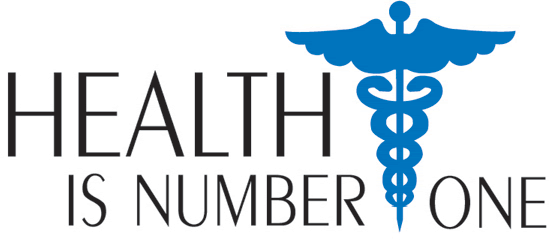Health Library ~ Family Medicine in Mullica Hill, NJAll Material copyright Craig M. Wax, DO unless otherwise
denoted. Want to Lose Weight? Do It the Safe Way
Are your old habits of grabbing fast food at lunch, munching on popcorn at the movies, and drinking soda pop daily starting to pack the pounds onto your body? You shouldn't be surprised-and you aren't alone. Obesity among young women in the United States is becoming an issue of serious concern. Healthy People 2010, a health initiative by the Surgeon General to prevent
disease and promote the health of the American people, estimates that nearly
25 percent of young people are overweight. This is twice the percentage
of 30 years ago.
You are never too young, too overweight, or too busy to make vital changes in your lifestyle that will help you lose or maintain weight. In addition, positive lifestyle changes can help you live a longer, healthier, more productive life. Lose Weight the Safe Way Craig M. Wax, D. O., an osteopathic family physician practicing in New Jersey, says osteopathic medicine can play an essential role in the fight to lose weight. "As an osteopathic physician, I focus on my patients' entire well-being-including analyzing any stresses in their lives before placing them on a weight loss program," explains Dr. Wax. "One of the things I ask my patients to do is submit a detailed three-day dietary history. This helps me to work with my patients to investigate the strengths and weaknesses of their current diet and exercise choices. " Dr. Wax recommends that anyone starting a weight loss program should seek the advice of a physician and keep in mind two key elements to healthy weight loss: nutrition and exercise. Nutrition
In addition to reducing your intake of simple carbohydrates and fats, you need to make sure you eat a balanced diet. A report by the Food and Drug Administration (FDA) emphasizes that an important part of healthy eating is getting enough of the five basic food groups in your daily diet. The recommended number of servings from each of the five basic food groups are found on the Food Guide Pyramid developed by the United States Dietary Association (USDA) and the U. S. Department of Health and Human Services (HHS). The pyramid recommends: * Milk, yogurt, and cheese group-2 to 3 servings a day. * Meat, Poultry, Fish, Dry Beans, Eggs, and Nuts group-2 to 3 servings a day. * Fruit group-2 to 4 servings a day. * Vegetable group-3 to 5 servings a day. * Bread, cereal, rice and pasta group-6 to 11
Keep these recommended servings in mind as you choose your foods. But also read labels on food products to determine how much saturated fat, cholesterol, fiber, and certain nutrients are found in each serving. Remember to strive for a daily intake of the recommended Daily Value for carbohydrates, dietary fiber, vitamins, minerals, fat, cholesterol, and sodium. To obtain the daily recommended values, consult your physician, the Food Guide Pyramid, or log onto any of the health Web sites provided at the end of this article. If you enjoy eating out, you don't have to stop doing so. You just need to eat smarter. Instead of ordering a fatty double cheeseburger with fries, go for the baked chicken sandwich. Better yet, have a salad that doesn't have a lot of oily dressing or fatty ingredients like ham or bacon. Exercise
"I suggest my 'Good Sweat Rule' to patients," says Dr. Wax. "If you can work up a good sweat for 30 minutes, and hold a conversation during that time without being out of breath," he explains,"you are giving your body a proper workout for cardiovascular fitness and weight loss. " Try swimming, speed walking, bicycle riding, or jogging. Join a health club and commit yourself to working out no fewer than three days a week. Think you are too busy to set aside time to exercise at a gym? Then get your activity in other ways. Try walking to work instead of taking the bus. Use your lunch hour to take a walk or to make use of an employee fitness room at your job. Take the stairs instead of elbowing your way into the elevator. And when you go shopping, park your car a ways from the store so you can get in a little walking! Forget About Short Cuts
Despite the warnings from physicians about taking short cuts to weight loss, many young women choose fad diets, go on starvation diets, skip meals, or take diet pills because they want to obtain the glamorized image of thinness and beauty. "Most people know that starving themselves or trying fad diets are bad ideas," says Dr. Wax. "But, some young women are being influenced by advertisements for popular diet drugs that promise a 'natural' way to shed pounds quickly. " Many of these diet pills are available over-the-counter and are never
reviewed or approved by the FDA. Taking some of these pills can be risky
business, cautions Dr. Wax.
Most diet pills induce weight loss because they produce stimulant, diuretic,
or laxative effects. Although they enable the user to shed water weight
(which can be unhealthy), they do not assist the body in long-term weight
loss, fat loss, or health management.
Weight Loss Takes Time
"Ultimately, people have to become responsible for their own health by teaching themselves better habits," notes Dr. Wax. "By making healthy nutrition and exercise choices early in life, you may be able to avoid serious health problems when you are older, such as heart disease, diabetes, hypertension, and obesity. " As physicians who emphasize prevention and wellness, D.O.s strongly support the U. S. Surgeon General's Healthy People 2010 initiative as both strive to increase the quality and years of a healthy life. The American Osteopathic Association (AOA) reminds you that November 12-18 is National Osteopathic Medicine Week. This year's target group is young women from the ages of 12 to 24. During this time, osteopathic physicians (D.O.s) will work to raise awareness within this group about the many issues they face as they strive to maintain healthy lifestyles. In addition, D.O.s plan to educate them on how preventive care can help maintain good health throughout their lives. D.O.s are fully licensed physicians who have additional training that focuses on the body's structure and function as well as its ability to heal itself. For more information on osteopathic medicine or to locate a D.O. in
your area, call the AOA at 1. 800. 621. 1773, ext. 8252 or visit the
Did You Know. . . ? * About 35 percent of women over the age of 20 are obese. * Currently, 24 percent of women are seriously trying to lose weight. * Americans spend more than $33 billion dollars annually on diet products. * More than 84 percent of young Americans eat too much fat. * Many diseases can be caused and can be worsened by poor diet and lack
of exercise. Such diseases account for more than 60 percent of U. S. medical
care expenses yearly.
Sources: American Osteopathic Association, Centers for Disease Control, National Safety Council, and Shape Up America! You can contact these organizations for additional information: Centers for Disease Control and Prevention
American Council on Exercise
Shape Up America!
|
|





